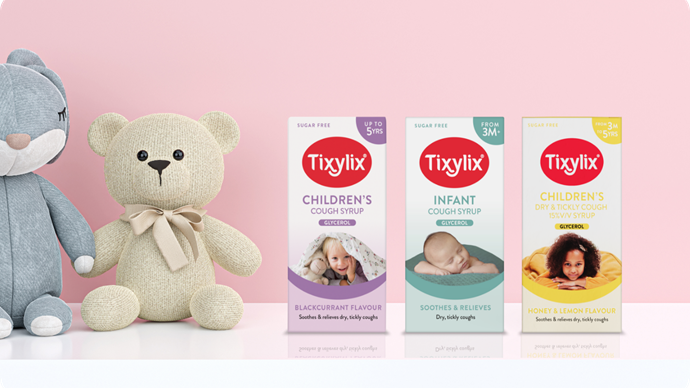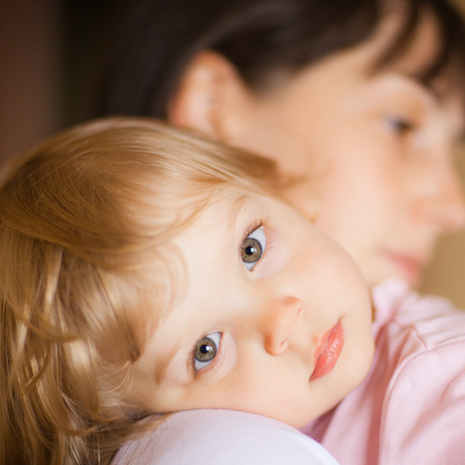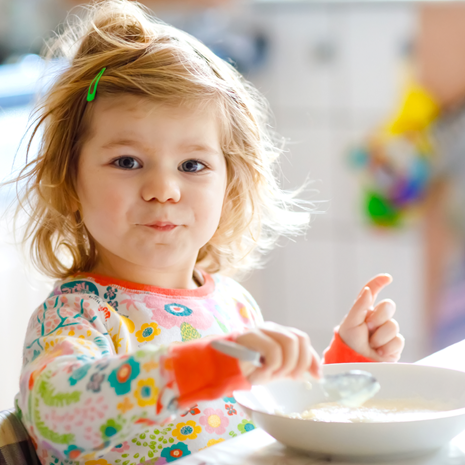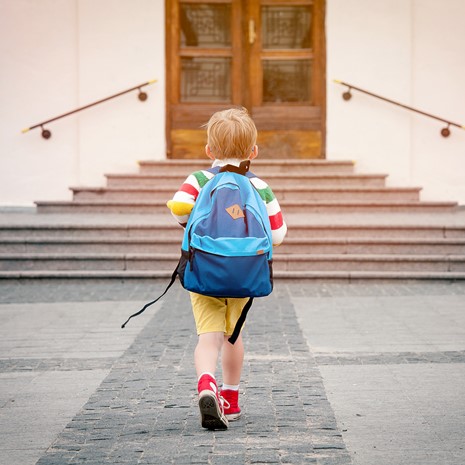UNDERSTANDING SEPARATION ANXIETY AND HOW TO HELP YOUR LITTLE ONE
Leaving your baby, toddler or child is never easy, especially if your little one cries or clings whenever you try to head out. “Parent guilt” is definitely at full force during these times!
We understand how hard it can be hard for parents, so we’ve put together a guide on separation anxiety. Read on to discover our top tips on how to reassure your baby or toddler during this developmental stage.

What is separation anxiety?
Separation anxiety is when a baby or toddler becomes distressed when separated from their parent or caregiver. This could happen the first time your little one sleeps at their grandma’s, their first day at nursery, or even just when you nip to the bathroom.
This doesn’t mean there’s something wrong with your baby, or that you’ve been over protective, separation anxiety is a completely natural phase of development that almost all children go through.
At what age does separation anxiety start?
Separation anxiety is common for children between the age of 6 months and 3 years. When your little one is a newborn, although emotional connections have started to form with parents and caregivers, they aren’t intellectually developed enough yet to realise who is holding or caring for them - which is why newborn babies are happy to be passed between family members!
Once your child is old enough to distinguish between different family members and friends, and realise who isn’t their parent or caregiver, this is when separation anxiety usually occurs.
We understand this can be a really distressing time for both you and your little one, but don't worry, separation anxiety is just a phase and normally passes after the toddler years. In some rare circumstances, separation anxiety can last longer. If this is the case, it can help to talk to your child's doctor or your health visitor about your child’s anxiety.

What are the signs of separation anxiety?
During their separation anxiety, your baby or toddler may start acting a little differently. Common signs of separation anxiety in your child might include:
- Increased clinginess or crying when you leave the room.
- Tensing up, crying or becoming extremely shy around unfamiliar people.
- Resistance to being looked after by family or friends.
- Reluctance to be put to bed at nap times or at night.
How can you help your baby with separation anxiety?
Whilst it can seem easier to give in when your little one cries when you try to leave, cancelling plans will only make it harder the next time you need to leave. Here are a few suggestions on how to make separation easier for your child:
Practice makes perfect
Gradually start leaving your little one in someone else’s care for a few minutes whilst you pop out of the room. Try this with someone they know well, so they’ll still feel comfortable and safe whilst you’re not there. Over time, increase the time away steadily as they become more comfortable with it.
Leave them with a comforter
When you are away, leave a blanket or jumper with your baby that smells like you, so they feel as though you’re still around.

Positivity is key
No matter how hard it is to resist responding to their cries (and to hold back your own tears in some cases!) always say goodbye in a positive way by smiling and waving confidently so they don’t pick up on your tension or upset. Don’t prolong the goodbye, make it as quick as possible so it is easier for the both of you.
Avoid sneaking out
It may seem like a good idea to sneak out and hope your child doesn’t notice you’ve left, but the positive goodbye is always a much better option in the long run.
Only check in with their carer
As tempting as it is, try not to go back and check on them once you leave. This will only make it harder for your baby, you and the person looking after them.
Of course it’s natural to worry when leaving your little one, so don’t be embarrassed to check in by texting or calling their carer if you start to feel anxious yourself. But try to minimise this and enjoy the little bit of me time you have!
Build a routine
Build separation into your routine. Have a set day with grandparents, or other family members, each week where they take your little one off your hands. This consistency will help your baby learn that you’ll soon return, helping them to build trust and confidence in coping without you.

Make exciting plans
As your little one starts to understand what you’re saying, you can start talking to them about what you’ll do together later to reassure them you’re always coming back.
Establish a bedtime routine
Dealing with separation anxiety in babies at night? Try making a relaxing routine to follow at bedtime, so your little one looks forward to experience: bath, books and a goodnight kiss. You could also record yourself reading stories or singing lullabies to help them feel less alone when you leave the room.
First day of school
And finally, if your child’s first day of school is coming up, separation anxiety may rear its head again. Luckily we’ve created a full guide here on how to prepare both you and your little one.
Have you gone through separation anxiety with your child and have some top tips to share? Send us a DM on Instagram, we’d love to hear from you!





